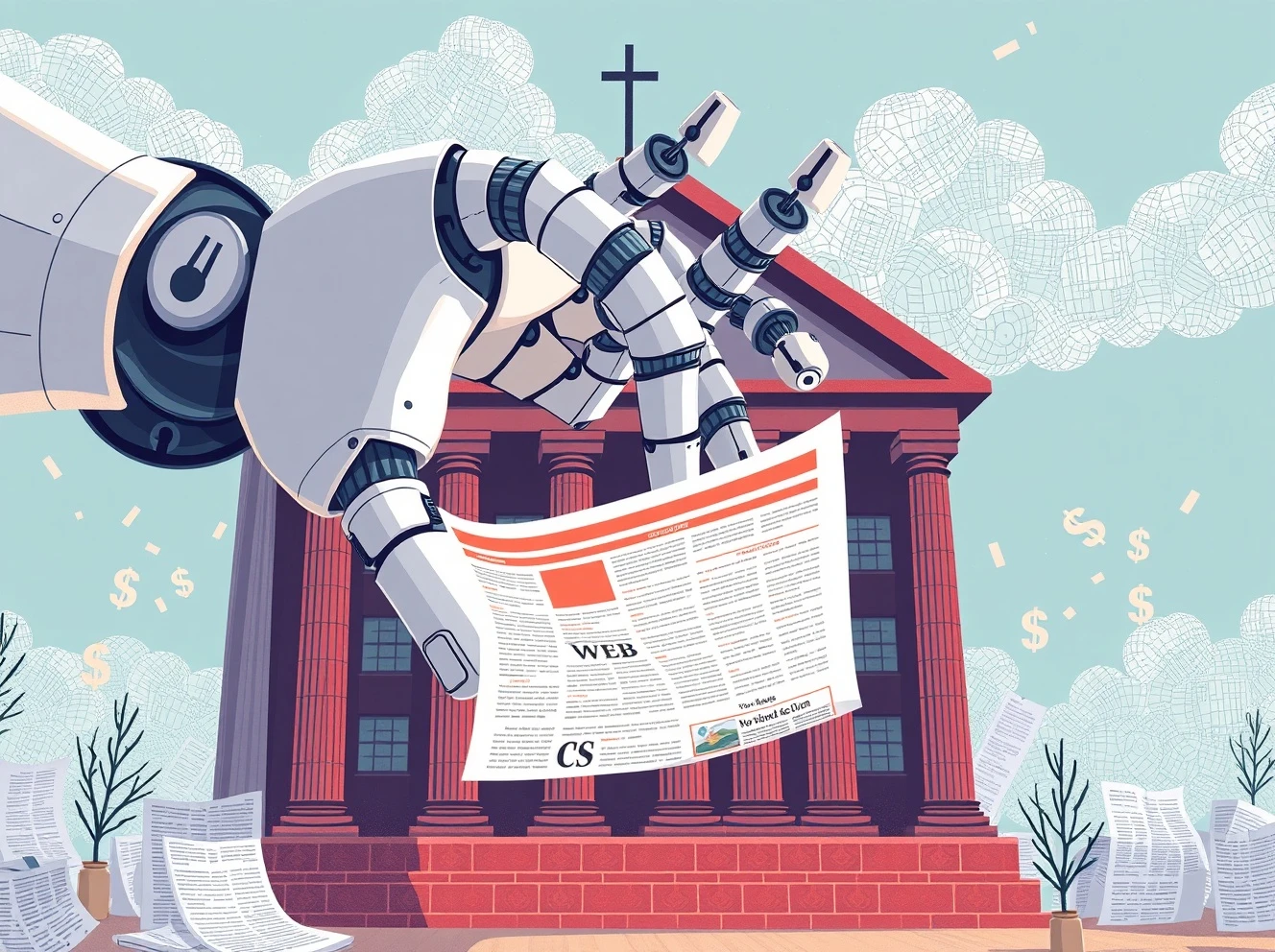Yahoo CEO Jim Lanzone has issued a stark warning that artificial intelligence poses an existential threat to publishers worldwide. The escalating copyright battle between media companies and AI developers has reached a critical juncture, potentially determining the future of digital journalism. This confrontation highlights the fundamental conflict between technological innovation and content creators’ survival.
The Growing AI Threat to Publishers
Jim Lanzone, who leads one of the world’s most visited websites, describes Yahoo as among the most heavily “pilfered” sources for AI training data. The core issue revolves around AI systems scraping copyrighted content without permission or compensation. Unlike traditional search engines that drive traffic to publishers, AI models repurpose content without attribution. Consequently, this practice undermines the economic foundation of digital publishing.
Copyright Battles Intensify Across Media
Major media organizations are mounting legal challenges against AI companies. The New York Times lawsuit against OpenAI represents a landmark case in this growing conflict. Meanwhile, some companies have pursued licensing agreements as temporary solutions. However, Lanzone characterizes these deals as damage control rather than genuine partnerships. The fundamental problem remains unresolved: AI companies continue to use protected content without initial consent.
Economic Impact on Publishing Models
The advertising-based revenue model that sustains many publishers faces severe disruption from AI content scraping. Key impacts include:
- Traffic erosion as AI provides answers directly without referring users to source websites
- Revenue decline from decreased page views and advertising impressions
- Content devaluation when original reporting gets repackaged without attribution
- Competitive imbalance between well-funded AI companies and content creators
Yahoo’s Stance and Future Strategy
Since its $5 billion acquisition by Apollo Global Management, Yahoo has strengthened its commitment to publisher partnerships. Lanzone emphasizes the company’s “pro-publisher and pro-open web” philosophy. Furthermore, Yahoo plans to introduce its own vision for the future of online search. The company aims to champion sustainable traffic models that support content creators. Ultimately, Yahoo’s future remains intertwined with publisher success.
Industry Responses and Potential Solutions
The publishing industry explores various approaches to address the AI threat to publishers. Some organizations pursue legal action, while others negotiate licensing agreements. However, Lanzone suggests that prevention would have been preferable to remediation. The industry needs comprehensive solutions that respect intellectual property while enabling technological progress. Balanced approaches must ensure fair compensation and proper attribution.
Future Outlook for Digital Publishing
The ongoing conflict between AI developers and publishers will likely shape digital media’s future landscape. Regulatory developments and court decisions may establish crucial precedents. Meanwhile, publishers must adapt their business models to withstand AI disruption. Sustainable solutions require collaboration between technology companies and content creators. The survival of quality journalism depends on finding equitable resolutions.
Frequently Asked Questions
What specific AI practices threaten publishers?
AI systems scrape copyrighted content without permission to train language models. They then repurpose this content to answer user queries without driving traffic back to original sources.
How does AI content scraping differ from traditional search engines?
Search engines display snippets and links that drive users to publisher websites. AI systems provide complete answers directly, eliminating the need for users to visit source sites.
What legal actions are publishers taking against AI companies?
Major publishers including The New York Times have filed lawsuits alleging copyright infringement. These cases seek to establish legal precedents regarding AI training data usage.
Are there any successful publisher-AI partnerships?
Some companies like Reddit and NewsCorp have signed licensing deals. However, many industry leaders view these as temporary fixes rather than sustainable solutions.
How can publishers protect their content from AI scraping?
Publishers can implement technical barriers, pursue legal action, and negotiate licensing agreements. However, comprehensive industry-wide solutions remain under development.
What long-term impact could AI have on journalism quality?
If AI undermines publisher revenue models, it could reduce resources for original reporting. This might ultimately diminish investigative journalism and quality content production.







